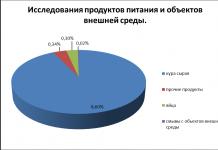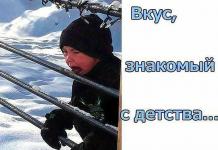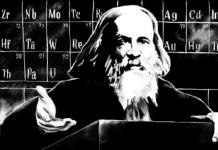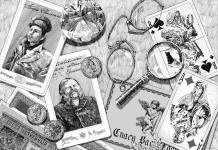Not so long ago, my acquaintance and I talked about children's and adolescent literature, and in the context was mentioned the cycle of Jonathan Stroud's "Bartimaeus Trilogy". I hadn’t read it before this conversation and immediately decided to read it.
This work is a kind of alternative to J.K. Rowling's acclaimed Harry Potter cycle. Here wizards rule Britain and they do it armed with Gellert Grindelwald's motto, embossed on the walls of Nurmengard: "For the common good."
If Rowling wrote mainly about her heroes and the problems of their growing up, acute and social topics, including political ones, practically not touching upon, then Stroud took a completely different path. In his world there is a clear social framework - the world is ruled by wizards, and people - commoners - are their servants. And even the richest of them are still second class. British wizards sit in parliament and rule not only their lands, but also actively fight with other countries - America, the Czech Republic, conflicts in Europe. Oppression cannot remain unanswered, and if in the Potter books wizards fight exclusively among themselves and Muggles are practically not involved in confrontation, then in Stroud we observe both the struggle of wizards with their own kind, and the attempts of commoners to throw off the yoke of the power of the magicians who control everything through artifacts and demons. This is another difference between the cycles: Rowling has wands and spells, and Stroud has pentacles, and demons are the main active force of witchcraft.
The cycle "Trilogy of Bartimeus" actually consists of three novels (I will not consider the prequel), which tells the story of the boy Nathaniel. He, too, is not brought up in his own family - he is a student of a wizard. There are no schools of magic in Stroud's world. Each wizard takes a pupil and teaches him to the best of his and his abilities. Moreover, he teaches not to wave a wand, shouting words, but to painstakingly draw pentacles and call demons of different classes for any service - from wars and battles to guarding doors.
Wizards in Nathaniel's world are all too often careerists, striving to climb higher, while sitting down a neighbor. And over the course of three books, we see how the empathetic sympathetic Nathaniel, jerking up the career ladder higher and higher, loses more and more his humanity, honesty, ability to love, sympathize and sacrifice himself.
It is rather difficult to single out the main character in Stroud's novels. There are several of them and their lines run parallel, allowing the reader to look at each from the other side: we see Nathaniel through the eyes of his very first and main assistant in the future, the demon Bartimeus and the commoner Kitty; We see Kitty through the eyes of a genie (demons like this name more) and a young magician; the line of Bartimaeus is often described by him himself in the form of excursions into his past. From all these parallels and intersections, we get a whole picture of a rather unsightly world in which there is much less good than not very worthy and simply bad. Moreover, both from the side of wizards and from the side of commoners. For example, Kitty's story perfectly illustrates that not all means are good even in war, and Nathaniel's story will demonstrate that revenge drains the soul without bringing satisfaction.
And over the course of three novels, experiencing unusual adventures, performing both vile and noble deeds, sometimes saving their country, friends and even enemies, our heroes smoothly go to the ending, which is quite unexpected. At least for me, she was. Made me think and rethink a lot. In particular, after Stroud, memories of the Potterians give off an obsessive, sugary caramel. The heroes of the "Trilogy" turned out to be more alive, natural and real.
So, the story is logically completed, but if you have not read it yet, then I suggest you take a book and read about the impetus for which events can be triggered by punishment by a solid and skillful magician of an insufficiently respectful apprentice ...)
Score: 9
Well, the last time I read “The Bartimaeus Trilogy” was a long time ago, and I wanted to see, but what mark did this series of books leave in me, which I have, so to speak, in the “bottom line”? What happened, I will write down the points (I wrote in the order in which I remembered, so, probably, the following can be called my personal rating).
1) Heroes. There are many of them, they develop and, most importantly, from book to book they do not lose their charm, but, on the contrary, acquire and reveal themselves from as many sides as possible.
Spoiler (plot disclosure) (click on it to see)
Nathaniel's sacrifice. A very risky step for a writer, which, at the same time, carries a lot. Here you also think that you have to pay for everything in this life, and for a major victory the price can be very high. Here is the final maturation of the protagonist, his choice as a formed personality. Had he survived after meeting Nouda, a truly wise and competent ruler would have appeared in the country.
3) "Ring of Solomon". I am still happy with this book, even if it has a rather weak relationship to the main trilogy. It is like a bright picture, which is pleasant to look at in moments of nostalgia.
4) Long-running riddles. It is very pleasant for me to remember now how I looked for clues to the last volume in previous ones. There was something similar with the Harry Potter cycle, but now I don't want to go into the jungle of Rawling's psychology and symbolism. But Stroud does not have much groundwork for the future, and almost all of them are on the surface. On rereading, it was good to know that the Golem Eye in Lovelace's collection is more than just a cool artifact name inserted for the catchphrase.
5) Bartimaeus humor. Most remember him first of all, but this humor gives the impression of a defensive reaction to me. Take a closer look, Bartimaeus is not difficult to lose his temper, he takes a lot to heart, and his relationships with people are unthinkable for this world. So he pulls him to joke more, to threaten more often and to everyone who calls to demonstrate something embarrassing, because it is so difficult to live in this world without laughing.
6) Timely set point. No resurrections, no Kitty adventures with Bartimaeus 5 years later, no sequels. A valuable ability of the author of a commercially successful cycle in the modern world.
7) Stylish covers of the Russian edition. Yes, they have a rather indirect relationship to the trilogy itself, but you must admit that we have an example of an extremely competent and high-quality approach to publishing books.
Everything? Of course not. I just wanted to end at this point. And so it is already clear that the books are good, and I do not regret reading them. Moreover, I am very glad that I had the opportunity to get to know such an amazing world.
Score: 8
I can only repeat after everyone else - a wonderful children's book. It’s a pity, it’s a pity that I didn’t pay attention to the epithet CHILD ... repeated many times in reviews with a certain number of grammatical errors. The main thing is how well everything starts, how it is written in English, what a delightfully disgusting character all without exception have! So many promises it's hard not to buy.
Do not buy, this is not the kind of children's literature that adults do not mind reading. There is a suspicion that a good, no-nonsense writer decided to make some money.
Who paid attention, Stroud's biography mentions a childhood spent next to old grimmoires and magic books - which means that everyone lined up together and are waiting for piquant details. But no, no details - all the same pentacles, runes (a strange choice for a demon of Assyrian origin), herbs (also mostly English) and conspiracies. For children of primary school age, it is quite informative.
In the second book, there is a glimpse of thought, but it quickly fades away. Disappointment on all fronts.
I give an A only for good language and a good sense of humor in places.
UPD from 04/07/13
But everything turned out to be not so simple - almost a year has passed, and I remember Bartimeus with nostalgia and tenderness; the British are generally great fellows in terms of children's fairy tales and Stroud still sunk into the soul. It is a pity, it is impossible to correct the assessment after the fact, now I would put at least an eight, or even a full-fledged nine.
Rating: 5
I read it and felt sad, because the trilogy is over. One of the best books that I have read recently, and you must take into account that I read only the selected books, filtered by Fantlab for my taste.
The book is incredibly fun. And at the same time slightly sad. The author I finally met made a strong impression on me. First, a style in which ease of presentation and dynamism combine with the brightness of the characters and the spectacularity of the scenes. Secondly, the ability to weave intrigue on familiar things and give them a new interpretation. Further, I really love books where the Author is subject to the ability to build interesting dialogues, and in this case, also witty dialogues. The protagonist is something very special. This is now one of my favorites. Along with Skive, Aahz and the team, I hope you understand what I mean?
The trilogy ends. I liked her, I just fell in love with her. And suddenly one more work is discovered in it, designated as ... Part of a trilogy, right. I begin to read with a doubt. And I discover that this is downright a bonus in the form of an even more fun, sparkling and exciting piece. Bartimaeus is the same and different there. In the same place, his friend-enemy is found, Farquel.
I am at a loss with the assessment, being in great enthusiasm, but still these are not top marks. Probably. There are unfinished lines, in my opinion, with the same Prague, for example, and with the finale of almost every part. There are many inconsistencies in the "Ring of Solomon" that could easily not have been. But all this gives way to the general impression and the joy with which I read the book. This genie is not just good, he has become a kind of family. And I am grateful to the Author for the appearance in my life of this character and the world.
I advise everyone to read it who likes to smile while reading a book, who generally likes books, where the heroes constantly find themselves in difficult and downright desperate situations, and their sense of humor does not betray them even in the face of the traditionally superior forces of the enemy.
I can't help but add a couple of lines about the upcoming film adaptation. The book asks for the screen. Especially in "The Ring of Solomon", where a number of scenes are presented in such a way that, apparently, right after that, for example, a scene of a fight with a marid in a dungeon was written.
Score: 8
How long it took me to read this trilogy (+ "Ring of Solomon"). With the "Amulet of Samarkand" I did not have a relationship right away (maybe this happened not without the help of my deeply respected Bartimeus))), the gins have their own jokes). I started reading this novel at least ten times. And that's all! And after reading a total of 80 pages I threw it away, I thought it would be forever. But every time I passed the bookshelf I caught the eye of the Amulet of Samarkand, the Eye of the Golem and the Gate of Ptolemy. Plus, the praise of people, which I did not understand, baffled me. Maybe I would not have opened these books anymore, if not for ... George Martin. The fact is that now I am reading Dance with Dragons. What can I say, Martin is Martin, he is, as always, on top. But the abundance of blood, cruelty, betrayal is so tiring that during the breaks I decided to read something relaxing. It was then that Jonathan Stroud and his trilogy caught my eye.
GUYS, NOW ALL THE ADVICE! Do not quit, like me, reading the first novel of the trilogy, because only after the hundredth page the main plot of this incredible story begins to unfold, and believe me, it will not disappoint you. All three books of the cycle were read in three days and now I can only say one thing. For me, the great cycle of Joan Rolling "Harry Potter" has always been the standard of children's books for all ages, because it was with him that my hobby with the world of fantasy began. But the "Bartimeus Trilogy", if not surpassed "Harry Potter", then definitely stood on a par with him. This cycle is more mature, it is full of frantic adventures and intrigues. And its main advantage is that it is completely, completely unlike any other world that I have ever read about. And the Rowling cycle in particular.
Score: 10
The trilogy is amazing in that with the help of simple words and not very intricate stories, it touches on a huge number of life issues: betrayal, pain from humiliation and a desire for revenge, love, faith, the period of growing up, finding oneself and the right path in life, trust, friendship ... The book becomes even more valuable because the story is told from the perspective of different characters, so the reader can look at the same event from different angles and eventually deduce his arithmetic mean. In addition, such changes in the "direct speech" of the main characters help to penetrate more deeply into the reasons for the actions of the characters. The author provides the reader with the opportunity to be a psychologist: to analyze thoughts, actions and draw conclusions.
Another definite plus is humor! Frankly, I was eagerly turning over the pages in anticipation of the "transition of the wand" to Bartimeus! In places, the humor is subtle, in places, as they say, on the forehead, but always funny, without vulgarity and stupidity. In addition, through the prism of humor, the reader can even better see the character, understand him.
Nathaniel is a pity ... The author very nicely describes his growing up, formation and choice of life path. From word to word, from page to page, from book to book, Stroud draws the life of an individual child, driven into the framework of the life that was chosen for him, shows the struggle for a place in the sun.
In general, almost all characters evoke some kind of emotion inside: sympathy, dislike, sympathy, disgust, etc. And this says a lot, because the heroes of the writers do not always turn out to be "alive".
As for the fourth book "The Ring of Solomon" - I liked it less. It seems that Bartimaeus, who was beloved for three books, is in place, and the intrigue is present, but for some reason it did not catch on. Perhaps because I had time to get used to Nathaniel, Kitty and others, and I was not used to seeing other characters. Maybe it makes sense to start acquaintance with the adventures of Bartimaeus precisely from the "Ring of Solomon" - this is a background and an introduction to the course of the matter.
Who is this trilogy for? For those who like to think. For lovers of detective stories, seasoned with a touch of humor and a touch of mysticism. For children, starting from the age of 12. In the period of formation, search for themselves, they could learn a lot for themselves.
Score: 10
The world depicted by Stroud is similar to ours with the only difference that magic exists in it and power is concentrated in the hands of wizards. People are busy with the daily struggle for life, and the ruling elite is mired in endless intrigues. Power - magicians live only for this. The main values are power, not knowledge, not a public good. Wizards in Stroud's world are demonologists - their power is based on demons, whom they force to serve themselves. The typology of demons is very diverse: from small demons to powerful jinn.
Wizards take small children as their apprentices, teaching them the magic arts. Such a student is twelve-year-old Nathaniel, who will be discussed in The Bartimaeus Trilogy.
Young Nathaniel is ambitious beyond his years. He summons a demon, and powerful enough - the genie of Bartimaeus. Formally, Nathaniel is not yet ready to call even a simple demon, his teacher Arthur Underwood is just about to start this lesson. But Nathaniel is a gifted and capable young man, in addition, he has an important reason to hurry - he wants revenge on Simon Lovelace, who brutally humiliated him. Bartimaeus will have to help in this.
With Nat there is a metamorphosis: he turns into a vain and narcissistic person. However, unlike the majority, he is capable of selfless acts and is no stranger to decency. Perhaps he would have performed many heroic deeds if he had a worthy example to follow. Only the teacher's clerk and the teacher's wife were kind to him. But the lessons of dignified behavior can be taught only by the genie he has summoned.
The image of Bartimaeus is very vivid and vivid. A sort of charming cynic. He brilliantly draws on himself the humorous component of Stroud's books. His comments - footnotes - deserve special attention.
Score: 8
I had a difficult relationship with the "Trilogy of Bartimeus", for a very long time I harnessed this sleigh, but the ride, however, turned out with a breeze.
This cycle of books was bought by a teenage son, with the main desire, probably, to diversify his "bookshelf". It only seems that there is a great variety of good teenage literature, especially science fiction and fantasy, in fact, a variety, in my opinion, this can only be called a stretch. The choice is usually limited to a few writers who have a real talent for writing about children, for children and, importantly, for their parents. And even among these writers, the number of books has boundaries, moreover, nearby, literally in the field of vision, and by no means extending beyond the horizon. And this is understandable - literature for children and adolescents is more demanding, it does not forgive falsehood, hack-work, and a commercial approach to writing.
By the way, the illustrations of the Russian editions of the series are pretty misleading, showing the classic image of gins. In fact, it would be more correct to portray Bartimeus in one of the guises in which he appeared in this world, most often as a teenager in a loincloth.
Another thing that initially alarms is the large number of footnotes, and moreover, quite voluminous. It seemed to me that reading would constantly stumble about them and mercilessly slow down, but how wrong I was ...
After reading just a couple of chapters, all doubts and fears disappear. After reading all three books, I completely forgot about Harry Potter, about the ending that was already known to me, I just enjoyed reading, sliding along the dashing plot built by the author, and those footnotes were the lubricant for the runners of my sleigh. They are great, all that sarcastic humor and sarcasm of a genie named Bartimeus hit the spot. If you disagree with me that good books for teenagers are not enough, then you must confirm the statement that the cat cried out for children's humorous literature.
There is a lot of humor, it is original, but soft, sometimes cynical, but more often satirical. But it was not only the task of entertaining that drove the author, while writing these works, not at all. The cycle touches on very important problems and not casually or in passing, but quite seriously and deeply enough - there will be something to think about for both the young reader and the older book lover. Thanks to the mood swings in the novels, from the jokes of the genie to the difficult mental torments of our heroes, Stroud managed to fit into the trilogy a very wide range of emotions, feelings and thoughts.
I did not make a reservation when I wrote the word "heroes" in the plural, but there will be several of them, and of course there will be a girl among them. Everything about the plot, no, no, read it yourself, you will find out everything, I assure you, it will not be boring. I will only add that all the characters are very good, spelled out exactly as much as the narrative requires. Even extras and extras easily sink into memory and therefore no effort is needed to remember all the characters.
The world described by Stroud is quite complete and understandable for itself, not devoid of logic, events do not have an epic scope, and therefore do not require a thorough description of the world order.
I do not think that in my review it is necessary to summarize, it seems to me that everything is clear. Develop your doubts, feel free to buy books, read with the whole family. And for the age recommendations, I would add a couple more numbers from 9+ to 99+.
Score: 8
The Bartimaeus Trilogy is usually compared to the Harry Potter cycle, but are they really so similar? There are, of course, similarities: magic, wizards and commoners (Muggles), London. But this is basically where it all ends. The Bartimaeus Trilogy is an original, unusual, vivid and distinctive cycle.
It is unusual, first of all, by magic. Wizards to perform magic summon various demons, foliots of genies, and other demons ... noble spirits. And already they are entrusted with various affairs, for example, to protect them or to steal something. The spirits are not delighted with all this, and therefore they strive to devour the wizard if he makes a mistake in the spell or incorrectly draws the pentacle. The wizards themselves without spirits are practically powerless, they, of course, can use, say, a magic staff, but again a spirit must be imprisoned inside the staff.
Actions take place on our planet, but in an alternative version. For example, in our time, the British Empire is the largest and most powerful country, and before it, such a country was the Czech Republic. Britain is ruled exclusively by wizards, commoners are not allowed to power and are generally in a state of oppression.
I will not go into the details of the plots of any of the novels (The Amulet of Samarkand, The Eye of the Golem, The Gate of Ptolemy). Each part is a full-fledged complete story, but not in the sense that you can read out of order, but in the sense that the books do not end at the most interesting place and have a finished form, leaving only some questions and prerequisites for the next part. "Ptolemy's Gate" ends the whole story and does not require any continuation, which is good news.
Undoubtedly, the strong point of the trilogy is the characters. And first of all, Bartimeus himself is a charismatic gin with a great sense of humor. I can't say that I laughed at his jokes, but this character invariably raises the mood. It will be fair to say that behind his jokes hides a very wise and intelligent person, who is not indifferent to what is happening and to some people. All this is especially noticeable in the third book, in the chapters (or rather, in the prologues to parts of the novel), which show excerpts from the past, when Ptolemy was its master, as well as the relationship with Kitty and Nathaniel.
Demons live in a different place and in order for them to appear on Earth, a wizard is needed who will summon them. And such a wizard for Bartimaeus becomes a small (at the time of the first book) boy Nathaniel - the second protagonist of the trilogy, whose growing up and changes, not always for the better, we observe. He is an ambiguous character, sometimes capable of causing both positive and negative attitudes towards himself. In addition to him, there is a third key character - the commoner Kitty, a kind of opposite to Nathaniel.
From book to book heroes develop characters, first of all Nata and Kitty, the personality of Bartimaeus took shape for millennia, but towards the end he also opens a little from another side.
The supporting characters are also thoughtful and do not cause any complaints from me.
The whole story is easy to read, there is no, so to speak, “drawdowns” in the quality of the text, from book to book the interest only increases and the “Ptolemy's Gate” reaches its peak. "Ptolemy's Gate" absorbs all the best and multiplies it. The final turned out to be unexpected and strong for me, most importantly, it did not disappoint, after reading it you understand that everything is as it should be.
The cycle is called "The Bartimaeus Trilogy", which means that there should be three books, but in fact there is a fourth - "Solomon's Ring", fortunately it is not an unnecessary continuation of the main books. The actions of this novel take place several thousand years before the "Amulet of Samarkand". The main character is the same Bartimeus, as well as a couple of new ones - Ashmira and Solomon. In terms of quality, this novel is not inferior to others, although I was less interested in it.
Ratings: "Amulet of Samarkand", "Eye of the Golem", "Ring of Solomon" - 8/10 ("Very good"). "Ptolemy's Gate" - 10/10 ("Magnificent"). The whole cycle is 8/10.
Bottom line: an interesting cycle, with great characters and humor. An original and highly thought-out world. A good plot, with a rather unexpected ending. Many people think that the cycle is exclusively teenage, but it seems to me that it may well be interesting for an adult audience. If we compare it with "Harry Potter", then in some places it will probably be stronger.
Score: 8
An unusual trilogy, out of the ordinary about fantasy - mine, at least. From this angle, I never thought about magic: to possess magic through the use of demons. The only skill of the sorcerer is to summon and subdue demons, forcing them to do what he needs. Is it magic - that is the question. Is this a virtue or just speculation? Wizards stand on very dangerous and shaky ground.
Bartimeus is incomparable. A very charismatic and flamboyant character. His remarks can be disassembled into quotes. He is wise, and cunning, and childishly spontaneous, although he is old from the point of view of time.
Nathaniel's fate touched him to the core. His path - so impetuous and so tragic - could not leave indifferent. He is like a star that shone so brightly in the sky, gaining strength, but falling early, leaving a bright trail.
In the trilogy, many topics are raised: friendship, loyalty, betrayal, social inequality, crime and punishment, the problem of choice - right or wrong - and its consequences, retribution for power, meaning and spruce of life.
Score: 9
In general, everything has already been said about the plot, morality and characters of the characters above, there is even nothing to add. The trilogy is really written not so much for children or adolescents as for adults who want to take a break from heavy, tension-saturated literature and relax a little. In order to correctly understand all the hints and jokes, non-teenage erudition is required. IMHO, the Potterian was not even close, and it’s not even very clear to me why these two completely dissimilar works are constantly put in one row.
In general, I liked the end, a sort of bullet, and all paths to the continuation are cut off. Although, in all honesty, I am a great lover of happy ends and opportunities to continue, and I think I'm not alone, so this factor can be regarded in different ways. =) But even though the heart requires more, the mind still understands what's next it is no longer possible, so that the impression does not deteriorate, and the wonderful work does not turn into soap and soap.)
The heroes are all at their best, from brave commoners to snickering power-lovers and all kinds of spirits, but Bartimaeus, of course, is beyond competition! Insanely bright, charismatic and charming genie with a fair sense of humor cheers up throughout the trilogy. For Bartimeus alone, you can safely put the highest score.) It is also very pleasing that the story is presented to the reader from different points of view, helping to feel the situation from each side. You experience it with all the heroes, each of whom in some way deserves encouragement, in some way - condemnation. This gives the story a liveliness.
Oh, and, of course, the translator is a huge plus. It is immediately obvious that a person is not devoid of a sense of humor.)
In general, 10, no doubt about it. I would have bet more if I could. =)
Score: 10
A long time ago, while reading "The World of Fantasy", I came across a review of the "Amulet of Samarkand". It said something like "Read urgently, it's better than Harry Potter!" I was then an inveterate potteromaniac, so I just grunted vaguely. Like, we know such. Many said they were better than Harry Potter, and where are they now? In a ravine, a horse is being eaten?
Then it somehow happened that I read the first book. Then I did not notice how I found the second one, and I read it too. Then he "swallowed" the third. Then - the prequel ...
It's hard to admit, but this episode is truly a cut above Harry Potter. In all respects. But especially - by the power of elaboration of the main character (I mean Bartimaeus). You still need to look for such a bright, well-written and intelligent character.
4. There is humor
5. The development of events as a whole is logical and for every stupid act the heroes pay their price, sometimes very high
I did not find any minuses, a very high-quality work without obvious failures, therefore 10 points.
Score: 10
The main characteristic is unexpected. Not lonely, but unexpected. And it is in this originality that the main feature, the success of the trilogy, lies. And what could have happened if it was not for the demons who seized power over people, but on the contrary, but at the same time the demons had power over physical laws? Yes, some characters, plots, style, ... can scare away part of the target audience by determining it by age, but this is hardly the main argument that you pay attention to. How I started reading: - bliiin, some primitive ... the imagination has inflamed ... -hmm, and what next? .. -Oh you, I wonder ... - oops, why did it end so quickly? Usually multivolume books drag on like a toothache - all the time you wait for the end, but here everything flew by imperceptibly, ended unambiguously, if there is a continuation, it is rather unnecessary than necessary. I remember Perumov wrote fiction on such devilry, but that book (Armageddon) turned out to be so flat, primitive and obtrusive that it did not lie next to the trilogy (perhaps the goal was simpler - and in this corner of the genre to inherit, nothing more). So what if the book is slightly Potter-like for children, and you know a lot of such children's books that are not interesting for children to read? Potter strained me, Bartimaeus, on the contrary, amused me.
Score: 9
Among the fantasy books of the late XX - early XXI centuries. interesting not only for children, but also for quite adult readers, the books of three British (!) authors stand out:
And it all starts with the fact that a young boy secretly summons the "evil demon" Bartimeus and orders him to steal the Amulet of Samarkand, completely unaware of what consequences this will lead to.
The entire trilogy is generally written at the same high level, although a certain evolution of the author from book to book can be traced. And if the first book is more entertaining (with not a lot in my opinion a blurry ending) and does not carry any deep ideas, then the subsequent books provide food for the mind, without losing their fascination at the same time.
A. Khromova
2003 - 2005, 2010
The books are set in England, placed in a kind of fairytale, magical reality, where wizards rule the world through spirits (demons, as wizards call them). In the first book, the narration comes from the perspective of Nathaniel (in the 3rd person) and Bartimaeus (in the 1st person), later, in the second and third books, Kitty Jones joins them (the narration is in the 3rd person), and in the second book one episode is described through the eyes foliot Simpkins (3rd person).
Jonathan Stroud
Jonathan Stroud was born in the English town of Bedford. Later, he and his family moved to St Albans. After college I decided to take up writing. At the moment, the following books have been published in Russia: "The Trilogy of Bartimaeus", "The Secret Fire", "Conquerors of the Monsters", "The Last Siege" and "The Ring of Solomon" (another story about Bartimaeus).
Amulet of Samarkand
The first part of the fantasy "Bartimaeus Trilogy". Released in 2003. It was this novel that brought fame to the writer.
Golem's Eye
The second book from The Bartimaeus Trilogy. The novel was released in Europe in 2004. It was published in Russian for the first time in 2005.
Summary
Nathaniel is now 14, he works in the Ministry of the Interior, and he is favored by the Prime Minister himself. But the attacks of the Resistance - a group of commoner wizards radicalized against the government - are becoming ever more destructive. But it is precisely in the powers of his ministry that they are. Nathaniel's career is in jeopardy, and he has no choice but to turn to Bartimaeus for help again. They again conclude a pact: Bartimeus promises not to reveal the true name of Nathaniel, and he, in turn, promises not to send him to the war in America. Nathaniel is familiar with the methods of the Resistance and suspects that the latest devastating attacks have nothing to do with him (he even met with their members himself in Book 1). Bartimaeus, along with other spirits, enters the patrol. He was during the attack on the British Museum and it became clear that the destruction is caused by a golem - a clay giant controlled by magic, widespread during the time of the Prague Empire, with the fall of which the secret of their creation was lost. Nathaniel and Bartimaeus travel to Prague and find Kavka, a wizard who has recreated the golem's spell. Unfortunately, he died and was unable to tell them the name of his employer. Nathaniel and Bartimaeus return to London. Meanwhile, the Resistance continues to operate. This is a group of commoners who have unusual abilities: resistance to magical attacks, the ability to see nask of illusions, etc. They commit a daring crime: they make their way into the tomb of Gladstone - the founder of the British Empire - deciding to steal the magic things located there. Kitty Jones is among them. But they are seized by the Afrit Honorius, trapped in the bones of Gladstone and left by him to protect his treasures, of which the Staff of Gladstone is of particular value. The mysterious patron of the Resistance really wanted him. Afrit killed almost everyone - only Kitty managed to escape, along with the staff, and Nicholas Drew, who abandoned his comrades. In order to catch Kitty and get the staff, Nathaniel takes her best friend Jacob Girnek hostage. Bartimeus finds Kitty and takes her to the appointed place, where Nathaniel was to come with Jacob soon. At this time, a conversation took place between them, which made a great impression on both sides. Nathaniel arrives, but, having received the staff, he breaks his promise to Kitty and is about to arrest her. But at this time, Afrit Honorius appears, hunting for Kitty, immediately after him a golem. Honorius tries to slay the golem, but was destroyed by it. To protect himself, Nathaniel tries to activate the staff, but it does not work properly, and he loses consciousness. Kitty is going to run away with Jacob, but, apparently taking pity on Natniel, she pulls the spell out of the golem's mouth, thereby disarming it, and then leaves. When Nathaniel woke up, Bartimeus told him that Kitty was dead. The golem comes to its master. It turned out to be Police Chief Henry Duvall. He talked about other conspirators, but while being escorted to his cell, being on the sixth floor, turned into a wolf and jumped out the window. He crashed to death. Nathaniel lets go of Bartimeus. In the last chapter, Kitty sends Jacob abroad, while she herself, despite the danger, remains in London.
Ptolemy's gate
The third book of the trilogy. It was released in the UK in 2005 and in the fall of 2006 in Russian.
Summary
The British Empire teeters on the brink of death: the war with America has greatly weakened the country, the commoners, dissatisfied with the dictatorship of wizards, are indignant, organize strikes and uprisings, attacks from other countries are constantly occurring. Nathaniel is 17 years old, but he is already the Minister of Information and a member of the ruling Council. He continues to hunt down Hopkins, who was involved in Duval's crimes. Bartimaeus has grown weak over the years of service to him, but he sends him to track him. Bartimaeus found Hopkins, and also came across mysterious conspirators who want to overthrow the government, but he himself almost died, fleeing from his pursuers, and on the way accidentally freed a powerful demon that destroyed buildings in the city. Nathaniel let him go so that he would regain his strength, refusing to ask right away how he would have killed him. His career is in jeopardy, and at this point he learns that Kitty Jones is alive. After escaping, she stayed in London and began working for a wizard, in fact, became his apprentice to summon Bartimeus and talk to him, as she dreamed of joint actions of spirits and commoners against wizards. When Nathaniel let him go, she summoned him, but could not get anything out of him. Nathaniel summons Bartimaeus again and orders him and his other spirits to capture Hopkins. The spirits arrive, but all are destroyed by Hopkins, then Bartimaeus discovers that in Hopkins's body is his old friend the genie Fakvarl, who has long been trying to fight for the freedom of spirits. Hopkins summoned him into his body, as he considered it possible to seize the power of the genie, but Facvarl supplanted his mind and became the master himself. He encloses Bartimaeus in a bowl of silver (which is deadly to spirits) and leaves him to die. At this time, Nathaniel goes to Kitty, but not to arrest her, but simply to thank and ask why she actually did it. During their conversation, the playwright Makepeace finds them and forces them to come to his play. The entire government is there, and Makepeace is coup d'etat with the help of petty wizards, taking over the entire government. He tries to win over Nathaniel as well. It was Makepeace who was the organizer of that plan to imprison spirits in the bodies of wizards. He was also involved in the Lovelace and Duval conspiracy, he was the mysterious patron of the Resistance. But he doesn't know that Facvarl captured Hopkins' body. He and his accomplices infuse spirits into their bodies, and Makepeace - especially a strong Node. The spirits soon take over the bodies of the wizards and begin to organize their army. Nathaniel and Kitty try to escape, but are captured. Nathaniel summons his spirits, but they were all killed by Facvarl, and only half-dead Bartimeus appears at his call. Nathaniel lets him go. He, too, will soon have to inspire a spirit, and Kitty will become a servant, since Bartimeus asked to keep them alive. They manage to escape, Nathaniel goes to fetch Gladstone's staff, and Kitty decided to go to Another Place and again ask Bartimeus for help. They come together to stop the demons. Bartimaeus takes over Nathaniel's body, giving him his power, but not destroying his mind. Together, they use the staff and begin to exterminate the demons. But the main demon Node is too strong, he absorbs the energy of the staff and wounds Nathaniel. Nathaniel decides to use the full power of the staff, it explodes, and Nouda dies, Nathaniel also dies, having released Bartimaeus before that. Kitty stays alive. After this, a new government is organized, consisting of wizards and commoners.
Solomon's ring
The fourth book, which is a prequel to the Bartimaeus trilogy. The book was published in 2010. The Russian version was released in winter 2011.
Summary
Year 960 BC. e. Israeli King Solomon ruled his empire from Jerusalem with a magic ring of incredible power. Among the many spirit slaves in the service of the king and his mages was the genie Bartimeus, a spirit with a particular cunning, sarcastic wit, and an unparalleled reputation for audacity. After the construction of an unsuccessful project, Bartimaeus goes into the desert to hunt down a group of bandits who are attacking the trade routes of Solomon, and in the process encounters the girl Asmira, who is in the service of the Queen of Sheba. Soon after, she reluctantly drags the genie on a seemingly suicidal mission: to kill Solomon and steal his ring.
Characters (edit)
Perfume
- Bartimeus- genie. Other names: Necho, Rehit, Algonquin Wakonda, Sakar-al-Jinny, and the Silver Feathered Serpent. Strong enough, has a very good sense of humor. Favorite incarnation - the appearance of Ptolemy - his old friend and master. Bartimeus respects strong personalities, which is why Kitty and Nathaniel, and before that Ptolemy, managed to get close to him. Despite all his sarcasm, he believed in the possibility of joint work of spirits and people.
- Facvarl- a genie, an old friend and rival of Bartimaeus. Served Lovelace, but after his death was imprisoned in a box at the bottom of the sea. After he was freed, Hopkins instilled in his body, cherishing thoughts of power, Facvarl supplanted his mind. He persuaded other spirits to do the same in order to take revenge on people. Was killed by Bartimaeus and Nathaniel. Always tried to fight for the freedom of spirits. Favorite incarnation is the fat chef.
- Nouda- a powerful demon beyond categories. Very cruel and bloodthirsty. Was infused into Makepeace's body. After it was destroyed by Bartimaeus and Nathaniel.
- Jabor- a genie, an old acquaintance of Bartimaeus and Facvarl. He served with Facvarl to Lovelace. During the summons, Ramutra was hunted with Bartimaeus, but was pulled into a funnel. Favorite incarnation - a man with red skin and a jackal's head.
- Quizzle- a genie, an old friend of Bartimaeus, with whom he worked in Prague. Was a slave to Fuchs. She was killed by a golem during its attack on the British Museum.
- Shubit- Genie (referred to as Afrit in Book 3) in the service of Jessica Whitwell. Favorite incarnation - bear. A quick servant. Freed from slavery after the murder of Jessica Nouda.
- Nemiades- a genie in the service of Tallow. Favorite appearance - green monkey. By order of the owner, he attacked Kitty and Jacob with the Black Thresher, from which Jacob's face and hands became covered with ash stripes, and Kitty discovered her resistance to magic.
- Honorius- Gladstone's afrit, imprisoned in his bones in order to protect the master's tomb from encroachments. From a long imprisonment, he went crazy. Destroyed during a suicidal attempt to jump on a golem, according to Bartimaeus, Afrit has long wanted to find peace and found an original way out.
- Naeryan- Afritsha, an old acquaintance of Bartimeus. He met her in Africa, during the campaigns of Scipio, later they worked together in Constantinople. Favorite appearance - bluish-black torso, three fiery eyes and many spider paws. Joined Facvarl, possessed the body of Clive Jenkins. She was killed by Bartimeus and Nathaniel.
- Ascobol- a genie in the service of Nathaniel. Favorite look - Cyclops in a Scottish skirt with two blond pigtails. Constantly mocked Bartimeus, to which he replied in kind. Flattering and groveling before Nathaniel. He was killed by Fakvarl.
- Kodran- Genie level 3 in the service of Nathaniel. Favorite look - a boar-man with fangs and hooves painted with blue waida. Served for a long time in Ireland, during the era of Celtic twilight. Sad and taciturn. He was killed by Fakvarl.
- Mwamba- a genie in the service of Nathaniel. For a long time she worked in the Abaluya tribes in eastern Africa. According to Bartimaeus, windy and flighty, like a butterfly. She was killed by Facvarl.
- Hodge- a genie in the service of Nathaniel. Thorns and a stench are always present in the assumed form. Together with Ascobol he made fun of Bartimeus. He was killed by Fakvarl.
- Simpkin- foliot, slave of Sholto Pinna. He worked in a store, in the first book he helped to capture Bartimaeus, in the second he was killed during a golem attack on his owner's store. Over the years of slavery, he got used to his role so much that he did not even want another lot for himself and served of his own free will.
Wizards
- Nathaniel (John Mandrake)- Wizard. The life path of this particular character from childhood to maturity can be traced throughout the trilogy. His character also undergoes strong changes from book to book. He is ambitious, but just and acts only in accordance with his principles, is not devoid of glimpses of conscience and duty, always tries to act for the good of his country.
His fate remained unknown. The trilogy ends at the point where Nathaniel removed the binding spells from the staff and it exploded. Readers themselves can come up with his fate. It can be assumed that he died.
- Rupert Deverox- Prime Minister of the British Empire, head of the Council, in the 3rd book served as chief of police. In his youth, he was a very strong leader, his charisma inspired Nathaniel when he was a boy, but by old age the fear of losing power led to paranoia, became dangerous and vindictive, completely inactive and did nothing for the good of the empire. He was very fond of the plays of the playwright Quentin Makepeace, as a result of which he managed to carry out a coup. During the Rise of the Spirits, a spirit possessed him. Was killed by Bartimaeus and Nathaniel.
- Karl Mortensen- Minister of Defense. He advocated a declaration of war on America, and it was his strategy that Britain adhered to in the conduct of the war. Presumably a demon possessed him and was killed by Bartimaeus and Nathaniel.
- Helen Mulbindi- Foreign Secretary. By nature, a person is soft and malleable, but prone to violent tantrums and outbursts of anger. Supported the policy of declaring war on America. During the Demon Rise, a spirit possessed her. She was killed by Bartimeus and Nathaniel.
- Jessica Whitwell- one of the strongest and most powerful sorceresses in Britain. She served as Minister of State Security. Skinny and pale, with blond hair. She devoted all her strength to improving the position of the empire. She was Nathaniel's mentor. Strict, cold and tough. She chose not to infuse a spirit into her body and was killed while trying to escape by the demon Noda.
- Bruce collins- the last Minister of the Interior. Swarthy, chubby, short-tempered, short. Presumably a demon possessed him and was killed by Bartimaeus and Nathaniel.
- Jane Farrar- a young attractive (which she likes to take advantage of) a sorceress, assistant to the chief of police, first Henry Duval, then Rupert Devereaux. For a while, Nathaniel liked and was sometimes his rival, then an ally, but in the end she turned her back on him. Smart, resourceful and power-hungry. Lost while trying to stop the Spirit Rise. Presumably killed by one of the demons.
- Quentin Makepeace- an ambitious playwright, a favorite of the prime minister, who has long cherished plans to overthrow the current government. Participated in the conspiracy of Lovelace, Duval. He instilled in himself the demon Nodu, who then destroyed his mind. Was killed by Bartimaeus and Nathaniel.
- Harold Button- a wizard and book collector. Mr. Button differed from other wizards in that he did not at all strive for power, but only for knowledge. His goal was to create a complete list of all spirits. When summoned, the marida lost his leg. Kitty got a job as an assistant, and he actually became her mentor. A bit grumpy. Loves tea.
- Sholto Pinn- The owner of a magic goods store. His shop in Book 2 was destroyed by a golem. Was captured during the Makepeace coup. The further fate is unknown.
- Clive Jenkins- a low-level wizard who, due to dissatisfaction with his fate, joined the conspiracy. He worked as a secretary at the Ministry of the Interior. He instilled in himself the Afritsha Naeryan, which destroyed his mind. Was killed by Bartimaeus and Nathaniel.
- Rebecca Piper- a young sorceress, Nathaniel's assistant. Fair-haired girl. I admired Nathaniel. After the suppression of the Demon Uprising, she headed the Provisional Council of the British government, was the chairman of the wizards.
- Henry Duvall- Chief of Police. To increase the authority of his department, he created a golem, which began to destroy the city, thereby undermining the authority of the Ministry of Internal Affairs. In fact, Makepeace put him on this. When Kitty pulled the spell out of the golem's mouth, it returned to its master in front of the entire city. Duvall was arrested, but before the interrogation began, he threw himself out of his cell window in the form of a wolf.
- Julius Tallow- a high-level wizard who headed the Ministry of the Interior in 2 (and probably 1) books. Seriously injured Jacob Girnek (Kitty survived thanks to her resistance to magic), then escaped responsibility in court. He was swallowed by Afrit due to a spell error - a mistake was deliberately made in the book bound for him by the Girneks printing house.
- Simon Lovelace- a strong wizard. I wanted to overthrow the government. To do this, he summoned the powerful demon Ramutra, protecting himself prematurely with the Amulet of Samarkand. His conspiracy was revealed by Bartimeus and Nathaniel. Was eaten by Ramutra.
- Rufus Lime- friend and colleague of Simon Lovelace, and after Quentin Makepeace. Looks like a fish. After the failure of the conspiracy, Lovelace hid in France. He instilled in himself a spirit, which afterwards destroyed his mind. Presumably destroyed by Bartimeus and Nathaniel.
- Amanda Cachkart- Simon Lovelace's girlfriend, in whose country house a conference was held at which Simon Lovelace was going to overthrow the government, but she herself probably did not know anything about the conspiracy. Presumably eaten by the demon Ramutra.
- Maurice Skyler- Simon Lovelace's mentor and one of his associates. Tried to kill Nathaniel when he wanted to talk about the conspiracy. Was killed by Nathaniel.
- Arthur Underwood- Nathaniel's first mentor, a very mediocre wizard. He worked in the Ministry of the Interior. He did not put Nathaniel into anything and considered him insignificant, as a result of which a warm relationship did not develop between the student and the mentor. As a child, he taught Nathaniel a cruel lesson by throwing him into a room full of petty spirits that attacked him. He was killed by Simon Lovelace during the case of the Amulet of Samarkand.
- William Gladstone- the founder of the British Empire, the strongest wizard, the creator of the Staff of Gladstone. In a magic duel, he defeated the wizard Disraeli. After his death, he buried the strongest artifacts in his tomb, imprisoning the Afrit Honorius in his bones for protection. Was an idol for Nathaniel.
- Ptolemy- the wizard of ancient Egypt, a cousin of the reigning dynasty, was interested in cooperation between people and genies, tested the "Ptolemy's Gate" - a portal for the transition of people to the world of genies, wrote the book "Apocrypha", using which Kitty Jones also went to Another place. He was killed by wizard mercenaries hired by his brother.
Commoners
- Kathleen (Kitty) Jones- a commoner, a member of the Resistance. A very strong personality who never deviates from his principles and a sense of justice.
- Clem Hopkins- Clerk of the British Library. The owner of an unusually unremarkable appearance and a master of disguise. He calls himself a scientist. Colleague of the Mysterious Patron and advisor to the Resistance. He later turned out to be a conspirator in the Golem Cause, Lovelace's conspiracy and the Demon Rise. He instilled in himself the genie Fakvarla, who then destroyed his mind. Was killed by Bartimaeus and Nathaniel.
- Jacob Girneck- childhood friend Kitty Jones, experienced the spell of the Black Thresher. In Book 2, Nathaniel used him as a hostage. After the Deal with the golem, he moved to his distant relatives in Bruges.
- T. E. Pennifezer- Owner of a shop for artists' supplies in London, founder of the Resistance movement. Possesses a fairly high resistance to magic. He was killed by Afrit Honorius during the robbery of Gladstone's tomb.
- Ann Stevens- an active woman of forty, the second most important person in the Resistance. Among other abilities, she sees through the illusion of magical entities like Bartimaeus. She was killed by the Afrit Honorius.
- Fred Weaver- a tall, pimply guy, a member of the Resistance. Together with a colleague from the Resistance, he stole a fortune-telling mirror from Nathaniel. He was killed by the Afrit Honorius.
- Stan Hayk- A newspaper peddler and member of the Resistance, capable of fainting due to the shimmering brilliance emanating from any object with magical power. Together with a colleague from the Resistance, he stole a fortune-telling mirror from Nathaniel. He was killed by the Afrit Honorius.
- Nicholas Drew- a commoner and political agitator. A long-lived member of the Resistance and a leading member of the Commoner Alliance. Has some resistance to magic. On it, Makepeace showed Nathaniel the demon's instillation into the human body. The further fate is unknown.
- Rosanna Lutyens- a commoner, Nathaniel's former art teacher, with a gentle, benevolent character. She was fired for trying to stand up for Nathaniel when he was bullied by Simon Lovelace.
- Martha Underwood- the wife of Arthur Underwood and a close friend of Nathaniel. She died with her husband in her own house in the incident with the Amulet of Samarkand.
- Mysterious mercenary(Verrok - this is how Makepeace addressed him) - a man with a black beard, who figured throughout all the books, a member of some assassin sect. He served Lovelace (he stole the Amulet of Samarkand for him, killing its previous owner), Duval and Makepeace (communicated with Kavka in Prague), and after the demons who took possession of the bodies of wizards. Possesses colossal magic resistance. Wears seven-league boots. He was killed by the Pestilent Spell while pursuing Nathaniel in the Artifact Vault.
The Bartimeus Trilogy. Fun fantasy cycle Jonathan Stroud
(estimates: 1
, the average: 5,00
out of 5)
 Title: Trilogy of Bartimeus. Fun fantasy cycle
Title: Trilogy of Bartimeus. Fun fantasy cycle
About the book “The Trilogy of Bartimeus. Fun Fantasy Cycle »Jonathan Stroud
In 2003, Jonathan Stroud's novel "The Amulet of Samarkand" was released, which became the first book in the magnificent fantasy series "The Bartimaeus Trilogy". A year later, the next novel in the series, The Eye of the Golem, was published, and in 2005, The Gate of Ptolemy. Five years later, Stroud wrote the novel The Ring of Solomon, which is a prequel to the trilogy and which examines the events leading up to the events of the novel Amulet of Samarkand. The trilogy has received many positive reviews from critics, as well as received the prestigious Mythoepic Award and is considered one of the best works in the teenage fantasy genre along with the Harry Potter series.
The events of the trilogy unfold in a kind of alternative reality, copied from Britain. But at the same time, the country is ruled not by a king or queen, but by powerful magicians who can summon demons or, as they are also called, jinn. The protagonist of all parts of the trilogy is the young magician Nathaniel. In the first book he is still a wizard's apprentice, but with each new work he gains experience and rises higher up the career ladder in a government consisting entirely of magicians and in the third novel "Ptolemy's Gate" we see him already Britain's Minister of Information. Nathaniel owes his success to a large extent not only to his personal qualities and ambition, but also to the ancient and powerful genie Bartimeus, who was called in the first novel to serve him.
Although the main character of the book at first seems to be the boy Nathaniel (as the story progresses, he becomes a teenager and, finally, an adult young man), as soon as a genie named Bartimaeus appears in the book, he immediately attracts attention. The ironic, clever Bartimaeus is the core of the story, and the dialogues with him cheer up and make you literally "stick" to reading. At his first appearance, the genie managed to demonstrate a wonderful sense of humor and the ability to transform into any creature and any object. For example, it costs him nothing to turn into a brand new citrus press.
Nathaniel initially summoned Bartimaeus to help him steal a very powerful magical artifact called the Amulet of Samarkand from the powerful magician Simon Lovelace. But, as it turned out, Lovelace was going to carry out a coup d'état and only by chance did Bartimaeus and Nathaniel find out about it. At the cost of tremendous efforts, the heroes of the novel manage to stop the traitor and this raises Nathaniel's status by several levels at once - his merits are personally noted by Prime Minister Rupert Deverox himself and invites the young magician to work in the Ministry of the Interior.
The next step for the young magician is a new business - in the capital, members of the "Resistance" who are trying to overthrow the power of magicians and create a new government that will be able to more flexibly rule the country. It soon turns out that someone from the government is deliberately subversive and helping the Resistance. Moreover, this "someone" created a golem, the technology of which was lost many years ago and with its help destroys the city. After a long search, Nathaniel and Bartimeus manage to stop the golem and identify the traitor.
A couple of years pass and in the novel "Ptolemy's Gate" Nathaniel is already the Minister of Information and participates in the meetings of the Council. He continues to unravel the threads that lead in a large-scale and well-conspired conspiracy, but does not have time a little - the leader of this conspiracy, Makepeace, captures all members of the government and wants to take all power for himself. In a fierce battle, Bartimaeus, who possessed the body of Nathaniel, defeats the demon Nodu who took possession of Makepeace's body. But no one can hold the forces that escaped from the staff, and in the last seconds Nathaniel manages to release Bartimeus, and he himself disappears in a destructive explosion ...
On our site about books, you can download the site for free or read the online book “The Trilogy of Bartimeus. A fun fantasy cycle »Jonathan Stroud in epub, fb2, txt, rtf, pdf formats for iPad, iPhone, Android and Kindle. The book will give you a lot of pleasant moments and real pleasure from reading. You can buy the full version from our partner. Also, here you will find the latest news from the literary world, find out the biography of your favorite authors. For novice writers, there is a separate section with useful tips and advice, interesting articles, thanks to which you yourself can try your hand at literary skill.
The trilogy won the Mythopoetic Prize in 2006.
The books are set in England, placed in a kind of fairytale, magical reality, where wizards rule the world through spirits (demons, as wizards call them). In the first book, the narration comes from the perspective of Nathaniel (in the 3rd person) and Bartimaeus (in the 1st person), later, in the second and third books, Kitty Jones joins them (the narration is in the 3rd person), and in the second book one episode is described through the eyes foliot Simpkins (3rd person).
Amulet of Samarkand
Golem's Eye
The second book from The Bartimaeus Trilogy. The novel was released in Europe in 2004. It was published in Russian for the first time in 2005.
Summary
Nathaniel is 14 years old and works in the Ministry of the Interior, and he is favored by the Prime Minister himself. Nathaniel is investigating the Resistance, a handful of magical commoners who have rebelled against wizards and engaged in subversion. Simultaneously with them, attacks with inconceivable destruction are taking place on the streets. The Council of Ministers thinks that this is the work of the Resistance. The attacks of commoners from the "Resistance" become more and more destructive and Nathaniel again turns to Bartimaeus for help, who, along with other spirits, takes over the patrol. At this time, an unknown person attacks one of the genies. Bartimeus follows on his heels and engages in battle. After Bartimeus' fight with the unknown, it becomes clear that the attacks are being made by the golem. It is known that to create a golem you need a golem eye and a magic scroll. Upon learning that such an eye was stolen from the storage place of the wizards' artifacts, it becomes clear that someone from the government is behind this. It remains only to find out where the traitor was able to find the magic scroll, because all the data on the creation of these scrolls have been lost since the time of the capture of Prague by Gladstone. For this clue, Nathaniel is sent to Prague, the historical homeland of the creation of golems, where one of the British spies awaits him. He wants to help Nathaniel solve the problem and makes an appointment, but she is attacked and the spy is killed. However, before he dies, he manages to convey to Nathaniel the name of the place and the name of the alleged creator of the golem scroll. Only thanks to Bartimaeus, Nathaniel is saved and goes to the indicated address, where he finds an exhausted old man who really has the knowledge of creating scrolls. He creates them not of his own free will. Immediately, a mercenary who was in the service of Lovelace came to them. Nathaniel tried to find a new employer for the mercenary, but to no avail. At this moment, the exhausted old man tears open the unfinished magic scroll and dies. The mercenary escapes and Nathaniel returns to London. While he was not in the grave of the famous wizard Ulyam Gladstone, members of the "Resistance" penetrate. The spirit trapped in Gladstone's bones kills all but two of the participants. One of them is Kitty Jones. Nathaniel finds out about this and goes to an agreement according to which Kitty returns the staff to him, and he lets her go. At this moment, a golem attacks them. Nathaniel passed out, unable to control the power of the staff. Kitty runs away, but at the last moment decides to save Nathaniel's life. She rips the scroll out of the golem's mouth and hides. After losing the scroll, the golem returns to the owner across the city to the ministry.
Ptolemy's gate
The third book of the trilogy. It was released in the UK in 2005 and in the fall of 2006 in Russian.
Summary
Nathaniel is 17 years old - he is the Minister of Information and a member of the ruling Council. He hunts Hopkins, who is involved in Duval's crimes. Bartimaeus finds Hopkins, as well as mysterious conspirators who want to overthrow the government, but miraculously escapes from them. Bartimeus discovers that in Hopkins's body is his old friend, the genie Fakvarl, who has long been trying to fight for the freedom of spirits. Facvarl traps Bartimaeus in a bowl of silver and leaves him to die.
Makepeace lures the entire government into his play, where, with the help of small wizards, he captures the entire government. He turns out to be the organizer of the plan to imprison spirits in the bodies of wizards, a participant in the conspiracy of Lovelace and Duval, and the secret patron of the Resistance. Soon, the spirits take over the bodies of the wizards and begin to organize their army.
Nathaniel goes to fetch Gladstone's staff, and Kitty goes to Another Place to ask Bartimaeus for help. They come together to stop the demons. Bartimaeus takes over Nathaniel's body, giving him his power, but not destroying his mind. Together, using the staff, they begin to exterminate the demons.
In the final battle, Nathaniel fights the main demon Noda, and when the staff explodes, both are killed. Nathaniel manages to let go of Bartimeus, Kitty remains alive.
After this, a new government is organized, consisting of wizards and commoners.
Solomon's ring
The fourth book, which is a prequel to the Bartimaeus trilogy. The book was published in 2010. The Russian version was released in winter 2011.
Summary
- Rupert Deverox- Prime Minister of the British Empire, head of the Council, in the 3rd book served as chief of police. In his youth, he was a very strong leader, his charisma inspired Nathaniel when he was a boy, but by old age the fear of losing power led to paranoia, became dangerous and vindictive, completely inactive and did nothing for the good of the empire. He was very fond of the plays of the playwright Quentin Makepeace, as a result of which he managed to carry out a coup. During the Rise of the Spirits, he was possessed by a spirit that was killed by Bartimaeus and Nathaniel.
- Karl Mortensen- Minister of Defense. He advocated a declaration of war on America, and it was his strategy that Britain adhered to in the conduct of the war. Presumably, he was possessed by a demon who was killed by Bartimaeus and Nathaniel.
- Helen Mulbindi- Foreign Secretary. By nature, a person is soft and malleable, but prone to violent tantrums and outbursts of anger. Supported the policy of declaring war on America. During the Demon Uprising, she was possessed by a spirit who was killed by Bartimaeus and Nathaniel.
- Jessica Whitwell- one of the strongest and most powerful sorceresses in Britain. She served as Minister of State Security. Skinny and pale, with blond hair. She devoted all her strength to improving the position of the empire. She was Nathaniel's mentor. Strict, cold and tough. She chose not to infuse a spirit into her body and was killed while trying to escape by the demon Noda.
- Bruce collins- the last Minister of the Interior. Swarthy, chubby, short-tempered, short. Presumably, he was possessed by a demon who was killed by Bartimaeus and Nathaniel.
- Jane Farrar- a young attractive (which she likes to take advantage of) a sorceress, assistant to the chief of police, first Henry Duval, then Rupert Devereaux. For a while, Nathaniel liked and was sometimes his rival, then an ally, but in the end she turned her back on him. Smart, resourceful and power-hungry. Lost while trying to stop the Spirit Rise. Presumably killed by one of the demons.
- Quentin Makepeace- an ambitious playwright, a favorite of the prime minister, who has long cherished plans to overthrow the current government. Participated in the conspiracy of Lovelace, Duval. He instilled in himself the demon Nodu, who then destroyed his mind.
- Harold Button- a wizard and book collector. Mr. Button differed from other wizards in that he did not at all strive for power, but only for knowledge. His goal was to create a complete list of all spirits. When summoned, the marida lost his leg. Kitty got a job as an assistant, and he actually became her mentor. A bit grumpy. Loves tea. After the Rise of the Spirits, he entered the Provisional Council.
- Sholto Pinn- The owner of a magic goods store. His shop in Book 2 was destroyed by a golem. Was captured during the Makepeace coup. The further fate is unknown.
- Clive Jenkins- a low-level wizard who, due to dissatisfaction with his fate, joined the conspiracy. He worked as a secretary at the Ministry of the Interior. He instilled in himself the Afritsha Naeryan, which destroyed his mind. Was killed by Bartimaeus and Nathaniel.
- Rebecca Piper- a young sorceress, Nathaniel's assistant. Fair-haired girl. I admired Nathaniel. After the suppression of the Demon Uprising, she headed the Provisional Council of the British government, was the chairman among the wizards.
- Henry Duvall- Chief of Police. To increase the authority of his department, he created a golem, which began to destroy the city, thereby undermining the authority of the Ministry of Internal Affairs. In fact, Makepeace put him on this. When Kitty pulled the spell out of the golem's mouth, it returned to its master in front of the entire city. Duvall was arrested. After several interrogations, he jumped out of his cell window in the form of a wolf.
- Julius Tallow- a high-level wizard who headed the Ministry of the Interior in the second book. Seriously injured Jacob Girnek (Kitty survived thanks to her resistance to magic), then escaped responsibility in court. He was swallowed by Afrit due to a spell error - a mistake was deliberately made in the book bound for him by the Girneks printing house.
- Simon Lovelace- a strong wizard. I wanted to overthrow the government. To do this, he summoned the powerful demon Ramutra, protecting himself prematurely with the Amulet of Samarkand. His conspiracy was revealed by Bartimeus and Nathaniel. Was eaten by Ramutra.
- Rufus Lime- friend and colleague of Simon Lovelace, and after Quentin Makepeace. Looks like a fish. After the failure of the conspiracy, Lovelace hid in France. He instilled in himself a spirit, which then destroyed his mind and was presumably destroyed by Bartimaeus and Nathaniel.
- Maurice Skyler- Simon Lovelace's mentor and one of his associates. Tried to kill Nathaniel when he wanted to talk about the conspiracy. Was killed by Nathaniel.
- Arthur Underwood- Nathaniel's first mentor, a very mediocre wizard. He headed the Ministry of Internal Affairs. He did not put Nathaniel into anything and considered him insignificant, as a result of which a warm relationship did not develop between the student and the mentor. As a child, he taught Nathaniel a cruel lesson by throwing him into a room full of petty spirits that attacked him. He was killed by Jabor on the orders of Simon Lovelace during the case of the Amulet of Samarkand.
- William Gladstone- the founder of the British Empire, the strongest wizard, the creator of the Staff of Gladstone. In a magic duel, he defeated the wizard Disraeli. After his death, he buried the strongest artifacts in his tomb, imprisoning the Afrit Honorius in his bones for protection. Was Nathaniel's idol in the first book.
- Ptolemy- a wizard of ancient Egypt, a cousin of the heir to the throne, dreamed of cooperation between people and genies, invented and tested the "Ptolemy's Gate" - a portal for people to enter the world of genies, wrote "Apocrypha", using which Kitty Jones also went to Another place. He was killed by wizard mercenaries hired by his brother.
- Clem Hopkins- Clerk of the British Library. The owner of an unusually unremarkable appearance and a master of disguise. He calls himself a scientist. Colleague of the Mysterious Patron and advisor to the Resistance. He later turned out to be a conspirator in the Golem Cause, Lovelace's conspiracy and the Demon Rise. He instilled in himself the genie Fakvarla, who then destroyed his mind.
Commoners
- Kathleen (Kitty) Jones- a commoner, a member of the Resistance. A very strong personality who never deviates from his principles and a sense of justice.
- Jacob Girneck- childhood friend Kitty Jones, experienced the spell of the Black Thresher. In Book 2, Nathaniel used him as a hostage. After the Deal with the golem, he moved to his distant relatives in Bruges.
- T. E. Pennifezer- Owner of a shop for artists' supplies in London, founder of the Resistance movement. Possesses a fairly high resistance to magic. He was killed by Afrit Honorius during the robbery of Gladstone's tomb.
- Ann Stevens- an active woman of about forty, the second most important person in the Resistance. Among other abilities, she sees through the illusion of magical entities like Bartimaeus. She was killed by the Afrit Honorius.
- Fred Weaver- a tall, pimply guy, a member of the Resistance. Together with a companion from the Resistance, he stole a fortune-telling mirror from Nathaniel. He was killed by the Afrit Honorius.
- Stan Hayk- A newspaper peddler and member of the Resistance, capable of fainting due to the shimmering brilliance emanating from any object with magical power. Together with a companion from the Resistance, he stole a fortune-telling mirror from Nathaniel. He was killed by the Afrit Honorius.
- Nicholas Drew- a commoner and political agitator. One of only two survivors of the sack of Gladstone's tomb of the Resistance and a leading member of the Commoner Alliance. Has some resistance to magic. Told Nathaniel that Kitty was not killed by the golem. On Nick, Makepeace showed Nathaniel the demon's infestation into the human body. The further fate is unknown.
- Rosanna Lutyens- a commoner, Nathaniel's former art teacher, with a gentle, benevolent character. She was fired for trying to stand up for Nathaniel when he was bullied by Simon Lovelace. When, seven years later, John Mandrake tried to thank her for it, she treated him with contempt.
- Amanda Cachkart- a rich commoner, Simon Lovelace's girlfriend, in whose country house a conference was held at which Simon Lovelace was going to overthrow the government, but she herself did not know anything about the conspiracy. Was eaten by the demon Ramutra.
- Martha Underwood- the wife of Arthur Underwood and a close friend of Nathaniel. She died with her husband in her own house during the attack of Jabor.
- Mysterious mercenary (Verrock- this is how Makepeace turned to him) - a man with a black beard and cold blue eyes, who figured throughout all the books, a member of some assassin sect. He served Lovelace (he stole the Amulet of Samarkand for him, killing its previous owner), Duval and Makepeace (communicated with Kavka in Prague), and after the demons who took possession of the bodies of wizards. Possesses colossal magic resistance. Wears seven-league boots. He was killed by the Pestilent Spell while pursuing Nathaniel in the Artifact Vault.



































